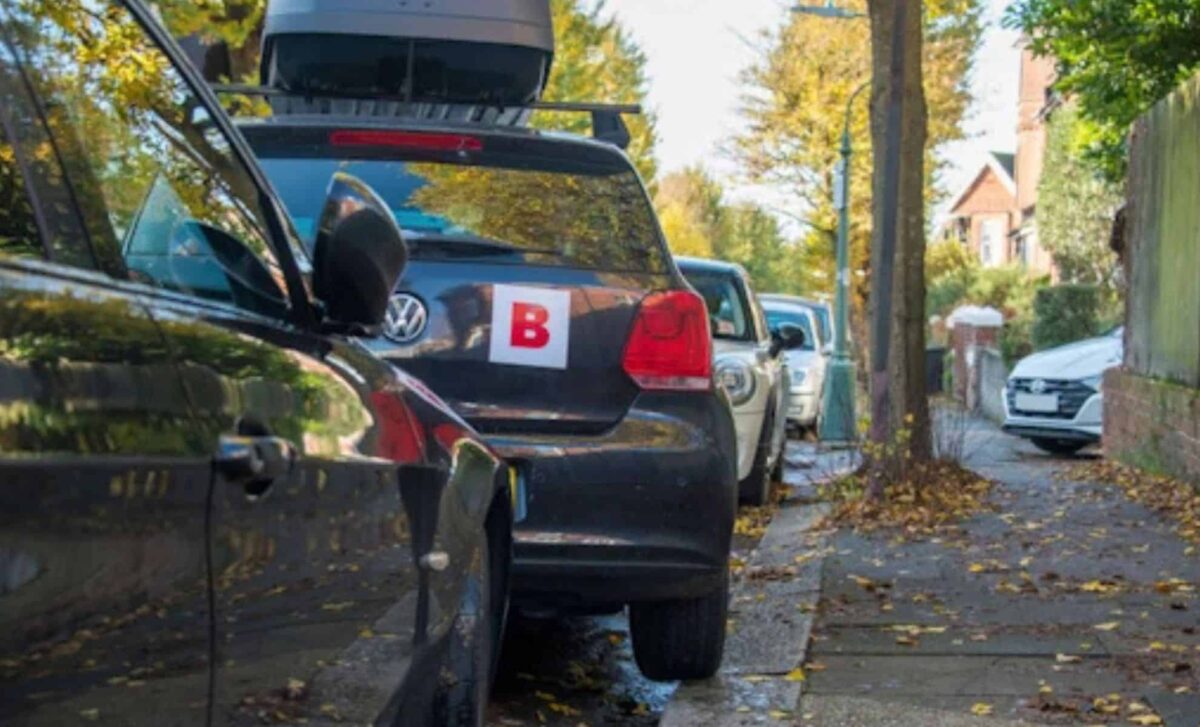In an innovative and lighthearted move, B Plates have been introduced in the UK to assist drivers who struggle with parking. Designed to signal parking difficulties to fellow road users, these red-on-white plates bearing the letter “B” aim to promote understanding and patience on the roads. Inspired by the popular P Plates, which denote new drivers, the B Plates provide an opportunity for motorists to acknowledge their parking challenges while fostering a sense of responsibility and openness about improving driving skills.
This initiative comes in response to increasing awareness of the stress and anxiety faced by drivers when parking, as well as the impact of poorly parked vehicles on road safety. Here’s how B Plates are set to make a difference.
Addressing Parking Challenges Through B Plates
Parking is a common source of anxiety for many drivers, with studies revealing the extent of the issue. Recent research found that nearly half of UK motorists feel they could benefit from additional parking guidance. Among those surveyed, 17% admitted experiencing stress or worry about parking, while 30% confessed to spending extra time looking for bays with free spaces on either side to avoid the pressure of parking between vehicles.
The anxiety surrounding parking, often dubbed “park-phobia,” is attributed to insufficient training during the learning process. A significant 23% of drivers reported that parking manoeuvres were inadequately covered during their lessons, leaving them ill-prepared for real-world challenges. Younger drivers appear to face the brunt of this issue, with 74% of those aged 17–24 indicating they would benefit from additional support.
David Kottaun, Operations Manager at Scrap Car Comparison, explained:
“No matter where you are in the world, you’ll come across examples of bad parking. However, it’s not just an issue of frustration for other road users—it’s also a source of stress and embarrassment for many drivers themselves.”
Who Is Most Likely to Struggle with Parking?
The study also revealed surprising patterns about the demographics of drivers most likely to struggle with parking. Drivers of luxury German cars were found to dominate the rankings of those in need of additional parking training. Here’s how various car owners ranked:
- BMW owners: 68% admitted to needing improved parking skills.
- Audi owners: 64% acknowledged parking difficulties.
- Mercedes-Benz owners: 63% felt they could benefit from further training.
- Honda owners: 63% expressed similar concerns.
- Toyota owners: 51% reported challenges with parking.
Other mainstream car brands like Kia, Citroën, Ford, Hyundai, and Fiat also made the list, with 45–48% of their owners admitting they could use additional parking guidance. These figures demonstrate that parking issues cut across vehicle types, driver experience, and socioeconomic status.
How B Plates Aim to Make a Difference
The introduction of B Plates offers a fresh perspective on addressing parking challenges. Similar to how P Plates indicate new drivers, the B Plates signal to other road users that a motorist may require extra patience while parking. Beyond acknowledging difficulties, the plates are also intended to reduce the embarrassment often associated with poor parking skills.
Kottaun elaborated:
“B Plates give people the chance to hold their hands up and say, ‘Yes, I struggle with parking, and I’m working on it.’ They also foster understanding among other road users, helping to create a more empathetic driving culture.”
The initiative is not just about reducing awkwardness; it’s also about improving safety. Poorly parked cars can obstruct roads, create hazards for pedestrians, and pose risks to other vehicles. By encouraging better parking habits and additional training, B Plates aim to mitigate these dangers while helping drivers feel more confident in their skills.
The Future of B Plates
The response to B Plates has been overwhelmingly positive, with many drivers expressing enthusiasm for a system that promotes accountability and understanding. Scrap Car Comparison, the company spearheading the initiative, plans to make B Plates widely available by 2025. They believe the plates could help not only individual drivers but also contribute to broader improvements in parking standards and road safety.
The long-term impact of B Plates will depend on their adoption and the willingness of drivers to use them as a stepping stone to better habits. For now, the initiative is seen as a practical, non-judgmental way to address a common problem that affects drivers of all ages and experience levels.









